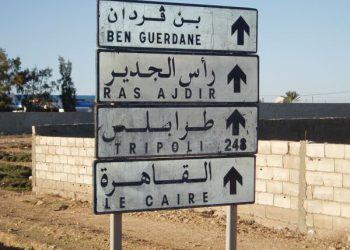By Haley Cook.
Washington DC, 14 November 2013:
Last week, on 6 November, the US Institute of Peace along with the Libya Institute . . .[restrict]for Advanced Studies held a discussion in Washington, DC on “Comparative National Dialogue Approaches: Transitions Processes in Libya, Tunisia, and Yemen” presented by a panel of experts.
The US Institute of Peace is an independent institution created by the US Congress for the prevention and mitigation of violent conflict. The Libya Institute for Advanced Studies is the first private institution for education and training established in Libya after the revolution.
Common points emerged from the experiences of the three countries that dialogue was an essential tool to build consensus and come together after conflict but it was not guaranteed to solve every problem. Panel participants agreed that conveners of dialogue had the difficult tasks of considering the most effective timing relative to a constitution process, transitional justice and other national goals; defining the purpose of the dialogue such as reconciliation, creating a national identity or determining shared political vision; and seeking to be as inclusive as possible without the whole process falling apart.
Radwan Masmoudi, Founder and President of the Center of the Study of Islam and Democracy, spoke of Tunisia’s experience with national dialogue as it worked to elect a new government. He pointed out that dialogue was especially important in the period before a constitution was in place to provide protections to minority political currents, as it offered inclusion in the political process. According to Masmoudi, including members of the former regime in the dialogue would increase legitimacy in the overall political process, while concurrent transitional justice would provide accountability.
Daniel Brumberg, Senior Advisor at the US Institute of Peace identified three main difficulties encountered with dialogue: the struggle over national identity, the contentious question of who is best suited to serve as a neutral arbiter of the dialogue, and the need for dialogue to be inclusive. According to Brumberg, “democracy requires that the potential losers see that at some point down the road they can become winners as well”. Additionally, he cautioned against legislation that barred officials of the previous regime provided they were not guilty of human rights abuses as it encouraged them to become spoilers in the new system.
Aref Ali Nayed, Chairman of the Libya Institute for Advanced Studies and Libyan Ambassador to the United Arab Emirates, described Libya’s national dialogue process so far as up to 35 separate initiatives that were becoming increasingly polarised and functioned more as “monologues about dialogues”. In order to build the consensus required for a successful constitution process, Nayed recommended a bottom-up approach to dialogue based on separate local dialogues held at the municipal level rather than the current top-down model where different government bodies and political parties all sponsored their own initiatives.
Tribal elders, religious leaders, women-led reconciliation efforts and youth initiatives were already demonstrating the resilience of Libyans and their capacity to come together at the local level, he said. “If we insist on having national dialogue formalised from above to below, we…end up losing all these emergent forms of dialogue that are diverse, plural, spontaneous, all over the place, but very, very effective.”
Given the difficulties of holding a meaningful discussion when some of the participants sought to do violence against others, Nayed urged dialogue participants to create a covenant where people agreed not to use violence. Exclusion from dialogue would not be based on ethnic, tribal, ideological or old regime status criteria, but rather on their willingness to use violence against those who do not hold their views. “Even if they don’t love each other, they have to love their country enough to get along”, he said.
Erica Gaston, Senior Program Officer, Rule of Law, at the US Institute of Peace said that “countries that are considering a national dialogue should think through what type of transition challenge they’re trying to address, how the timing of the national dialogue fits in with other transition elements and more carefully arbitrate the content of the national dialogue agenda.” Gaston explained that as Yemen looks to create a future state structure to keep the country together, national dialogue has met some stumbling blocks. Yemenis have begun to view dialogue as a foreign, outside process rather than an internal process, but dialogue has been remarkably inclusive.
This event came on the same day that the US Institute of Peace signed a Memorandum of Understanding with the Libya Institute for Advanced Studies to provide international expertise to it.
The institute has worked in Libya with local civil society partners since Spring 2011 to build local capacity in conflict resolution, constitution-making, and justice and security issues.
A number of Libyan civil society organizations are engaged in local reconciliation and dialogue efforts.
[/restrict]







